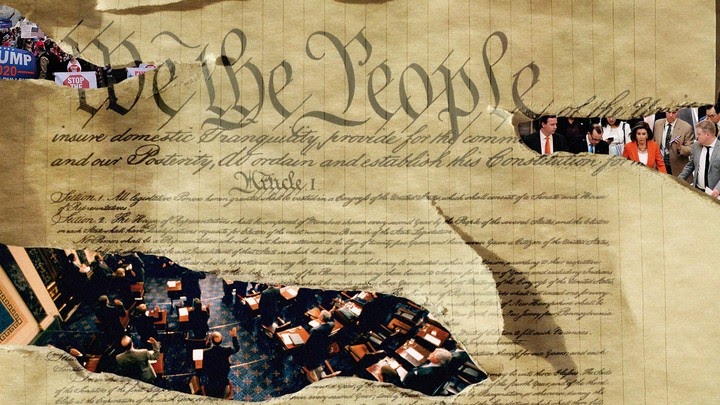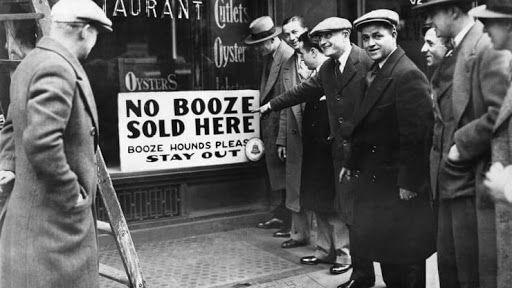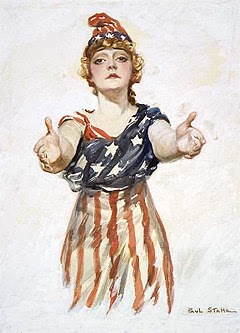
We the people of the United States know very little detailed information about the constitution. In 2019, a study showed only 15 percent of Americans knew the Constitution was written in 1786. Only 25 percent knew there are 27 amendments to the Constitution. As American citizens, we should know the rights our country was founded on and the ones that were added on along the way. In our last installment we looked at the Bill of Rights and how that affects us in modern times. The next nine amendments will show us things such as the era of reconstruction after the Civil War and Women’s Suffrage. We will dive into whether or not we still use the 18th amendment and how the way senators are elected changed since the 17th amendment came into play.
11. The Judicial power of the United States shall not be construed to extend to any suit in law or equity, commenced or prosecuted against one of the United States by Citizens of another State, or by Citizens or Subjects of any Foreign State.
This amendment exists to keep the federal government from having too much power. In 1793 during Chisholm V. Georgia it was ruled that a state could be sued. This was overturned by the 11th amendment. In basic modern terms the 11th amendment means that if you live in one state you can’t sue another state in federal court.
12. The Electors shall meet in their respective states and vote by ballot for President and Vice-President, one of whom, at least, shall not be an inhabitant of the same state with themselves; they shall name in their ballots the person voted for as President, and in distinct ballots the person voted for as Vice-President, and they shall make distinct lists of all persons voted for as President, and of all persons voted for as Vice-President, and of the number of votes for each, which lists they shall sign and certify, and transmit sealed to the seat of the government of the United States, directed to the President of the Senate; — The President of the Senate shall, in the presence of the Senate and House of Representatives, open all the certificates and the votes shall then be counted; — The person having the greatest number of votes for President, shall be the President, if such number be a majority of the whole number of Electors appointed; and if no person have such majority, then from the persons having the highest numbers not exceeding three on the list of those voted for as President, the House of Representatives shall choose immediately, by ballot, the President. But in choosing the President, the votes shall be taken by states, the representation from each state having one vote; a quorum for this purpose shall consist of a member or members from two-thirds of the states, and a majority of all the states shall be necessary to a choice. And if the House of Representatives shall not choose a President whenever the right of choice shall devolve upon them, before the fourth day of March next following, then the Vice-President shall act as President, as in case of the death or other constitutional disability of the President.– The person having the greatest number of votes as Vice-President, shall be the Vice-President, if such number be a majority of the whole number of Electors appointed, and if no person have a majority, then from the two highest numbers on the list, the Senate shall choose the Vice-President; a quorum for the purpose shall consist of two-thirds of the whole number of Senators, and a majority of the whole number shall be necessary to a choice. But no person constitutionally ineligible to the office of President shall be eligible to that of Vice-President of the United States.
Before the 12th amendment the way the president and vice president were chosen when electors would vote for two candidates. These would be the people they believed to be best qualified as president. Whoever got the most votes would be president and the runner up would be vice president. This system leaves an opening for the president and vice president to be of different parties, which is what happened 1796. It also creates a bigger risk of a tie which is what happened in 1800. The decision was then left up to the house of representatives. The 12th amendment made it so there would be two distinct ballots for president and vice president. It also gives us the favorite son clause which states that states can’t vote for two candidates from their state; they have to vote for one candidate that isn’t from their state.
13. Neither slavery nor involuntary servitude, except as a punishment for crime whereof the party shall have been duly convicted, shall exist within the United States, or any place subject to their jurisdiction.
Congress shall have power to enforce this article by appropriate legislation.
The Emancipation Proclamation, issued by republican president Abraham Licoln before his assasination in April of 1865, freed all persons held as slaves in 1863. Then the 13th amendment, ratified on december 6, 1865, ended involuntary servitude and prevented slavery from ever happening again. The only exception being when an individual is being punished for a crime. You can see Modern statistics for prison labor here.

14. All persons born or naturalized in the United States, and subject to the jurisdiction thereof, are citizens of the United States and of the State wherein they reside. No State shall make or enforce any law which shall abridge the privileges or immunities of citizens of the United States; nor shall any State deprive any person of life, liberty, or property, without due process of law; nor deny to any person within its jurisdiction the equal protection of the laws.
Representatives shall be apportioned among the several States according to their respective numbers, counting the whole number of persons in each State, excluding Indians not taxed. But when the right to vote at any election for the choice of electors for President and Vice-President of the United States, Representatives in Congress, the Executive and Judicial officers of a State, or the members of the Legislature thereof, is denied to any of the male inhabitants of such State, being twenty-one years of age, and citizens of the United States, or in any way abridged, except for participation in rebellion, or other crime, the basis of representation therein shall be reduced in the proportion which the number of such male citizens shall bear to the whole number of male citizens twenty-one years of age in such State.
No person shall be a Senator or Representative in Congress, or elector of President and Vice-President, or hold any office, civil or military, under the United States, or under any State, who, having previously taken an oath, as a member of Congress, or as an officer of the United States, or as a member of any State legislature, or as an executive or judicial officer of any State, to support the Constitution of the United States, shall have engaged in insurrection or rebellion against the same, or given aid or comfort to the enemies thereof. But Congress may by a vote of two-thirds of each House, remove such disability.
The validity of the public debt of the United States, authorized by law, including debts incurred for payment of pensions and bounties for services in suppressing insurrection or rebellion, shall not be questioned. But neither the United States nor any State shall assume or pay any debt or obligation incurred in aid of insurrection or rebellion against the United States, or any claim for the loss or emancipation of any slave; but all such debts, obligations and claims shall be held illegal and void.
The Congress shall have the power to enforce, by appropriate legislation, the provisions of this article.
Over all the 14th amendment, ratified July 9, 1868, fixed the prior supreme court ruling of Dred Scott V. John F. A. Sandford. This ruling said that African-Americans could not be citizens. This amendment gives anyone born in the United States citizenship to the United States and the state in which they were born. We also see the federal government protecting citizen’s rights of life and liberty on a state level. These rights were botched when Plessy V. Ferguson deemed “separate but equal” to be constitutional. It wasn’t until Brown V. Board of Education in 1954 that we saw equal rights truly began to form and the Civil Rights movement began. This amendment also prevents anyone who has previously served in office from holding any office a second time unless a two-thirds vote of the house says otherwise. This was mainly written in order to prevent confederate leaders from taking office. We also see a forgiveness of the debt left from the civil war and the voting age being set to 21. In modern day this amendment protects us from the state government taking our rights as free citizens. The 14th amendment has influenced everything from the Civil Rights movement to the fight for rights of those in the LGBTQIA+ communities.
15. The right of citizens of the United States to vote shall not be denied or abridged by the United States or by any State on account of race, color, or previous condition of servitude.
The Congress shall have the power to enforce this article by appropriate legislation.
This amendment was ratified February 3, 1870 and gives the right to vote to men of color. At the time this was written the USA was going through reconstruction after the civil war. The House, at the time, was run by the Republicans and they wanted African Americans to have the right to vote before southern democrats came back and gained control of part of the House. However due to state level Black Codes and Jim Crow laws that were designed so that African Americans wouldn’t have equal rights made it hard for them to actually vote. It wasn’t until the Voting Rights Act of 1965 that we really saw a difference in voting for people of color.
16. The Congress shall have power to lay and collect taxes on incomes, from whatever source derived, without apportionment among the several States, and without regard to any census or enumeration.

Before the 16th amendment was ratified February 3, 1913 the supreme court had deemed income tax as unconstitutional during Pollock V. Farmers’ Loan and Trust Company in 1895. This leads to tariffs and a “direct” tax. These both made people very unhappy which paved the way for the 16th amendment which would now allow for graduated income tax rather than using tariffs and direct taxes. This means today we are federally taxed based on the amount of money we make rather than the census or individual items.
17. The Senate of the United States shall be composed of two Senators from each State, elected by the people thereof, for six years; and each Senator shall have one vote. The electors in each State shall have the qualifications requisite for electors of the most numerous branch of the State legislatures.
When vacancies happen in the representation of any State in the Senate, the executive authority of such State shall issue writs of election to fill such vacancies: Provided, That the legislature of any State may empower the executive thereof to make temporary appointments until the people fill the vacancies by election as the legislature may direct.
This amendment shall not be so construed as to affect the election or term of any Senator chosen before it becomes valid as part of the Constitution.
The 17th amendment was written so that we would have a truly democratic government. Before the ratifying of the 17th amendment on April 8, 1913 senators were chosen by the state legislature which led to buying seats, and corrupt bargaining. This amendment gives us the right to vote for who will represent our state in the senate. Each state is given two representatives in the senate.

18. After one year from the ratification of this article the manufacture, sale, or transportation of intoxicating liquors within, the importation thereof into, or the exportation thereof from the United States and all territory subject to the jurisdiction thereof for beverage purposes is hereby prohibited.
The Congress and the several States shall have concurrent power to enforce this article by appropriate legislation.
This article shall be inoperative unless it shall have been ratified as an amendment to the Constitution by the legislatures of the several States, as provided in the Constitution, within seven years from the date of the submission hereof to the States by the Congress.
Ratified on January 16, 1919, the 18th amendment prohibited the manufacture, sale, and transportation of intoxicating liquors. This amendment was later changed by the 21st amendment which we will look at in the final installment of this series. This amendment came from the rampant alcoholism of the early 1900’s. The anti-saloon league, who were backed by people from all different beliefs, ended up helping write the law that goes with the 18th amendment called the volstead act. This amendment does not affect us today.
19. The right of citizens of the United States to vote shall not be denied or abridged by the United States or by any State on account of sex.
Congress shall have power to enforce this article by appropriate legislation.

The 19th amendment was ratified August 18, 1919 and gave women the right to vote. The National American Woman’s Suffrage Association, ran by Carrie Chapman Catt, was one of the bigger influencers of this amendment. They were seen as a patriotic group by the Woodrow Wilson administration. With Wilson seeing the movement positively he pushed for the 19th amendment after the war. Today this amendment still gives women the right to vote.
The Constitution and the amendments are our building blocks as a country. All decisions in law-making are decided around our rights as people. Those rights are given to us in the constitution and amendments. Knowing your rights as a free American is important so that you know where we came from and how our country is supposed to run. This way, you can be an essential protector of freedom in America. In our next, and final, installment we will look at the repeal of prohibition, how many terms a president can serve, and the lowering of the voting age just to name a few.

